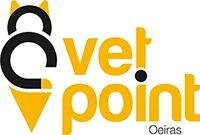Brachycephalic dog breeds are breeds with short or flat snouts. These include breeds such as:
– French bulldog
– English bulldog
– Boxer
– Pug
– Shih Tzu
– Pekingese
– Lhasa apso
– Boston terrier
– Maltese bichon
– Cavalier king Charles spaniel
– Dogue de Bordeaux
– Cane corso
– Chow Chow
Brachycephalic dogs: everything you need to know
Brachycephalic breeds can be easily recognised by their short, flattened snouts and, as a consequence, their small nostrils and smaller airways. They are breeds that have become very popular in recent years, due to their bushy appearance and good character. However, before you buy one of these dogs, there are several things you should know so that you can make a conscious and informed decision, namely that the breeding of some of these breeds has recently been banned in some European countries for animal welfare reasons.
As a result of their flattened snouts, their airways are shorter and narrower, they have a very long tongue, their soft palate is very long and they have narrow windpipes compared to normal dogs of the same size. All this causes these animals to suffer from a syndrome known as Brachycephalic Syndrome, the severity of which varies from animal to animal, but is still not widely recognised by owners, who accept these problems as normal according to the breeds.
In daily life, these dogs snore a lot, get tired more easily and are very intolerant of exercise and heat. Snoring comes mainly from the size of the soft palate which, being very long, vibrates with the passage of air, producing the sound we know so well. This vibration is not harmless – it leads to constant inflammation of the area and makes breathing difficult, with continuous production of very thick mucus. When we talk about exercise intolerance, we see that brachycephalic breeds are more likely to not want to exercise, take longer to recover when stimulated and are more likely to collapse during exercise, even with light exercise. The culmination of all this is the severe intolerance these animals have to heat – dogs use a structure called the nasal turbinates to control their body temperature, but brachycephalic breeds have practically no such structures, which makes controlling their temperature much more difficult and predisposes them to heatstroke, a life-threatening condition.
Difficulties in breathing and temperature control mean that these dogs gasp a lot and consequently swallow large quantities of air. The air expands the stomach, stimulates vomiting, irritates its walls and leads to the development of gastritis. Frequent vomiting inflames the oesophagus, causing oesophagitis and making it difficult to eat. Gastro-oesophageal reflux is also very common and difficult to control.
As if that weren’t enough, these dogs have serious dental problems due to the poor shape of their jaws, which means they have problems eating, are more prone to tartar accumulation and have difficulty eating. As a result of this poor conformation, the eyeballs are overexposed, predisposing them to eye problems such as dry eye, eye trauma and infections. Their skin wrinkles, which fascinate us so much, are points where moisture accumulates, which stimulates the growth of bacteria, fungus and yeasts to which many of these animals are allergic.
Not necessarily related to Brachycephalic Syndrome, but rather to the deformities inherent in the breeds, spinal problems are very common, especially herniated discs, which arise from the existence of hemivertebrae that destabilise the spine.
Last but not least, congenital heart defects, which are often inoperable, have been identified more and more frequently, especially in bulldogs.
To sum up, these breeds have been greatly altered by selection for the characteristics that are most attractive to owners, but not necessarily the healthiest, so before acquiring one of these animals, we should make a considered decision and choose a responsible and certified breeder, thus minimising the risk of problems arising from non-responsible breeding.
Vet.Point – Oeiras Veterinary Clinic
Emergency 24h | 927896112 – 211918923 | geral@vetpoint-ivl.com

